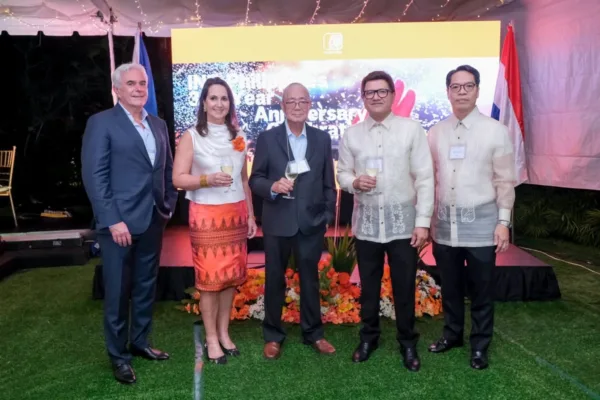In a recent media advisory, the Bangko Sentral ng Pilipinas (BSP) announced that the Philippines has successfully met its ambitious target of digitalizing half of its retail payments and is now on the right track towards achieving its goal of being a cashless economy.
As of 2023, an impressive 52.8 per cent of monthly retail transactions are now being conducted digitally, marking a significant milestone in the country’s journey towards a cashless economy.

BSP’s commitment to driving financial innovation and inclusivity in PH now slowly bearing fruit
This achievement underscores the BSP’s commitment to driving financial innovation and inclusivity. E-payments dominate the digital transaction landscape, making up 40.1 per cent of all payments. The surge in digital transactions also highlights the growing acceptance and convenience of cashless payments among Filipinos.
Merchant payments leading the digital charge
Merchant payments have been the primary driver of this digital transformation, accounting for a staggering 64.9 per cent of monthly digital payment volumes.
This surge is a testament to the increasing adoption of digital payment solutions by businesses, ranging from small local vendors to large retail chains.
Person-to-person transfers also play a significant role, making up 19.3 per cent of all e-payments. This growth indicates a rising trend among individuals opting for the convenience of digital transactions for personal payments.
Additionally, business-to-business (B2B) supplier payments constitute 6.1 per cent of the e-payment landscape, showcasing the integration of digital solutions in corporate transactions.
BSP’s continuing commitment to financial transformation
BSP Governor Eli M. Remolona expressed immense pride in this achievement, emphasizing that the success reflects the effectiveness of the central bank’s policies and initiatives. “We should not rest on our laurels. Achieving the target is not the end goal. What we would like to see are lives being transformed by our policies,” Governor Remolona stated in a message posted on the BSP’s website.
The central bank’s strategic initiatives have been instrumental in fostering a robust digital payment ecosystem. The recent rollout of the Intraday Settlement Facility service by the BSP is a prime example of such initiatives. This service aims to prevent timing mismatches in the settlement of payments, ensuring a seamless and efficient digital payment process.
The Philippines’ achievement in surpassing the 50% digital payments target signifies a pivotal moment in the country’s financial landscape. It reflects a broader shift towards digital financial services, driven by technological advancements and the increasing demand for convenient, secure, and efficient payment solutions.
This transition to digital payments offers numerous benefits, including enhanced financial inclusion, reduced transaction costs, and improved financial transparency. By embracing digital transactions, the Philippines is not only modernizing its financial infrastructure but also paving the way for economic growth and development.
In 2023, the BSP governor, then a member of the Monetary Board, also assured the public that the BSP is continuing to work with several countries and banks in Asia to make cross-border payments more reasonable and effective for the time being.
“Connectivity for cross-border payments will help and facilitate commerce, investment, and other economic activity on a global scale,” BSP governor Remolona then said.
He added that on November 2023, the BSP signed a memorandum of understanding (MoU) with other central banks affiliated with the Association of Southeast Asian Nations (ASEAN) to improve coordination on payment connectivity.
According to him, the Bank of Indonesia, Bank Negara Malaysia, the Monetary Authority of Singapore, and the Bank of Thailand signed the Memorandum of Understanding (MoU) of cooperation in Regional Payment Connectivity during the G20 Leaders’ Summit in Bali, Indonesia.
The deal would enable quick, easy, and less expensive cross-border transfers throughout the area. It will also encourage a more inclusive financial ecosystem and help speed up the country’s economic recovery.







